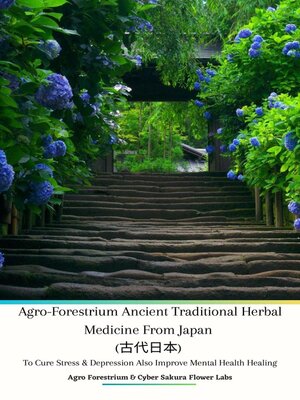Agro-Forestrium Ancient Traditional Herbal Medicine from Japan (古代日本) to Cure Stress & Depression Also Improve Mental Health Healing
ebook
By Agro-Forestrium

Sign up to save your library
With an OverDrive account, you can save your favorite libraries for at-a-glance information about availability. Find out more about OverDrive accounts.
Find this title in Libby, the library reading app by OverDrive.



Search for a digital library with this title
Title found at these libraries:
| Library Name | Distance |
|---|---|
| Loading... |
Traditional herbal medicine has a rich and intricate history in ancient Japan, deeply rooted in the cultural, spiritual, and medicinal practices of the time. Dating back thousands of years, the development of herbal medicine in Japan was influenced by various factors, including indigenous knowledge, Chinese medicine, and Buddhist teachings. This amalgamation of influences shaped the unique approach to healing that characterized traditional Japanese herbal medicine.
The earliest records of herbal medicine in Japan can be traced back to the Jomon period (10,000–300 BCE), where archaeological evidence suggests the use of medicinal plants for healing purposes. Over time, as contact with China increased, Japanese healers began to adopt and adapt Chinese herbal remedies, incorporating them into their own healing practices. This exchange laid the groundwork for the development of Kampo, the traditional Japanese system of herbal medicine, which became more formalized during the Nara (710–794 CE) and Heian (794–1185 CE) periods.
In ancient Japan, the development of traditional herbal medicine for mental health illnesses was deeply intertwined with cultural beliefs, spiritual practices, and medical knowledge of the time. While specific terminology and diagnostic criteria may differ from modern understandings, historical records indicate a recognition of mental health issues and attempts to address them through herbal remedies.
During the Nara (710–794 CE) and Heian (794–1185 CE) periods, Japanese society saw the emergence of formalized medical practices influenced by Chinese medicine. Mental health disorders were often understood through the lens of imbalances in the body's vital energies, or ki. Healers prescribed herbal formulas aimed at restoring harmony and balance, incorporating ingredients such as ginseng, licorice root, and peony to alleviate symptoms associated with conditions like anxiety, depression, and insomnia.







